Filter by
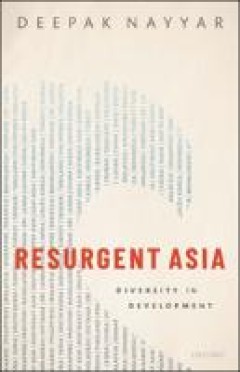
Resurgent Asia : diversity in development
Resurgent Asia analyses the phenomenal transformation of Asia, which would have been difficult to imagine, let alone predict, fifty years ago, when Gunnar Myrdal published Asian Drama. In doing so, it provides an analytical narrative of this remarkable story of economic development, situated in its wider context of historical, political, and social factors, and an economic analysis of the under…
- Edition
- 9
- ISBN/ISSN
- 9780198849513
- Collation
- xix, 320p.; ill.
- Series Title
- -
- Call Number
- 338.95 RES n
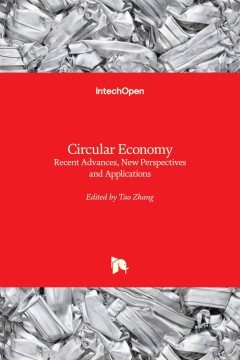
Circular Economy
Nowadays, the restriction of resources and the environment is very severe. A circular economy is the only way to sustainable development, but how this works still needs more exploration. The series of studies carried out by the author are described in detail in this book.
- Edition
- -
- ISBN/ISSN
- 9781838810719
- Collation
- xiii, 128p. : ill,
- Series Title
- -
- Call Number
- 338.927 TAO e
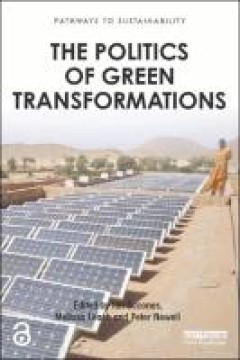
The politics of green transformations
Multiple ‘green transformations’ are required if humanity is to live sustainably on planet Earth. Recalling past transformations, this book examines what makes the current challenge different, and especially urgent. It examines how green transformations must take place in the context of the particular moments of capitalist development, and in relation to particular alliances. The role of th…
- Edition
- -
- ISBN/ISSN
- 9781315747378
- Collation
- xv, 238 p. : ill.
- Series Title
- -
- Call Number
- 320.58 SCO t

Deals and development : the political dynamics of growth episodes
"International financial crises have plagued the world in recent decades, including the Latin American debt crisis of the 1980s, the East Asian crisis of the late twentieth century, and the global financial crisis of 2007-09. One of the basic problems faced during these crises is the lack of adequate preventive mechanisms, as well as insufficient instruments to finance countries in crisis and t…
- Edition
- -
- ISBN/ISSN
- 9780198801641
- Collation
- xxv, 335 p. : bnw, ill.
- Series Title
- -
- Call Number
- 338.90091724 WER d
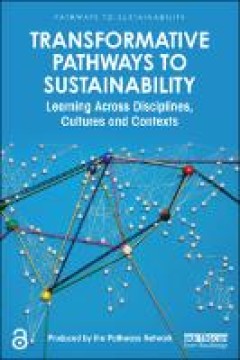
Transformative pathways to sustainability : learning across disciplines, cult…
Transformations to sustainability are increasingly the focus of research and policy discussions around the Sustainable Development Goals. However, the different roles played by transdisciplinary research in contributing to social transformations across diverse settings have been neglected in the literature. Transformative Pathways to Sustainability responds to this gap by presenting a set of co…
- Edition
- -
- ISBN/ISSN
- 9780429331930
- Collation
- xxviii, 237 p. : ill
- Series Title
- Pathways to Sustainability
- Call Number
- 338.927 THE t

Multilateral banks and the development process : vital links in the results c…
A chain is only as strong as its weakest link. When the links in the chain represent development projects, if individual projects fail to achieve their purpose, the development program's effectiveness is compromised. When the chain's links are strong and well-connected, the results are improved for the sector, country, and region. The role of multilateral banks is crucial; they inform the impac…
- Edition
- -
- ISBN/ISSN
- 9781412847674
- Collation
- xxi, 153 p. : bnw, ill.
- Series Title
- -
- Call Number
- 332.153091724 THO m
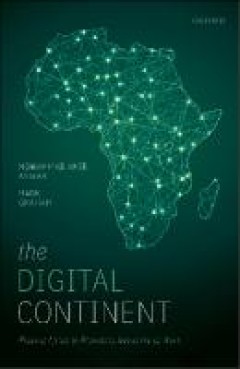
The digital continent : placing Africa in the world of digital work
Only ten years ago, there were more internet users in countries like France or Germany than in all of Africa put together. But much has changed in a decade. The year 2018 marks the first year in human history in which a majority of the world’s population are now connected to the internet. This mass connectivity means that we have an internet that no longer connects only the world’s wealthy.…
- Edition
- -
- ISBN/ISSN
- 9780198840800
- Collation
- 288p. ; ill.
- Series Title
- -
- Call Number
- 331.096 MOH t
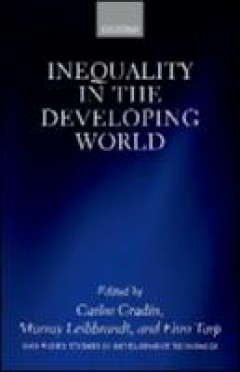
Inequality in the developing world
Inequality has emerged as a key development challenge. It holds implications for economic growth and redistribution and translates into power asymmetries that can endanger human rights, create conflict, and embed social exclusion and chronic poverty. For these reasons, it underpins intense public and academic debates and has become a dominant policy concern within many countries and in all mult…
- Edition
- Ed. 1
- ISBN/ISSN
- 9780198863960
- Collation
- xx, 352 p. : ill.
- Series Title
- -
- Call Number
- 330.91724 TAR i
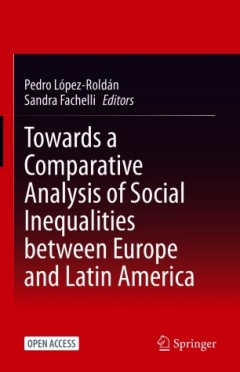
Towards a comparative analysis of social inequalities between Europe and Lati…
This open access volume identifies the common and specific aspects of social mechanisms that generate inequalities, through comparative analyses of different dimensions in which inequalities are expressed. It includes studies on social inequalities in 5 European and 5 Latin American countries, along 11 thematic axes: inequalities in the labour market and labour trajectories; asymmetries in the …
- Edition
- -
- ISBN/ISSN
- 9783030484422
- Collation
- xxiii, 480p. : ill.
- Series Title
- -
- Call Number
- 305.5 TOW t
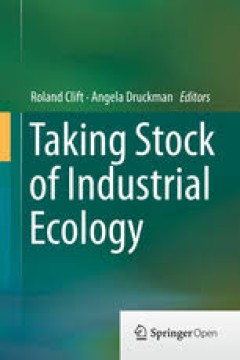
Taking stock of industrial ecology
How can we design more sustainable industrial and urban systems that reduce environmental impacts while supporting a high quality of life for everyone? What progress has been made towards reducing resource use and waste, and what are the prospects for more resilient, material-efficient economies? What are the environmental and social impacts of global supply chains and how can they be measured …
- Edition
- -
- ISBN/ISSN
- 9783319205717
- Collation
- xxi, 263p.
- Series Title
- -
- Call Number
- 338.9 CLI t
 Computer Science, Information & General Works
Computer Science, Information & General Works  Philosophy & Psychology
Philosophy & Psychology  Religion
Religion  Social Sciences
Social Sciences  Language
Language  Pure Science
Pure Science  Applied Sciences
Applied Sciences  Art & Recreation
Art & Recreation  Literature
Literature  History & Geography
History & Geography